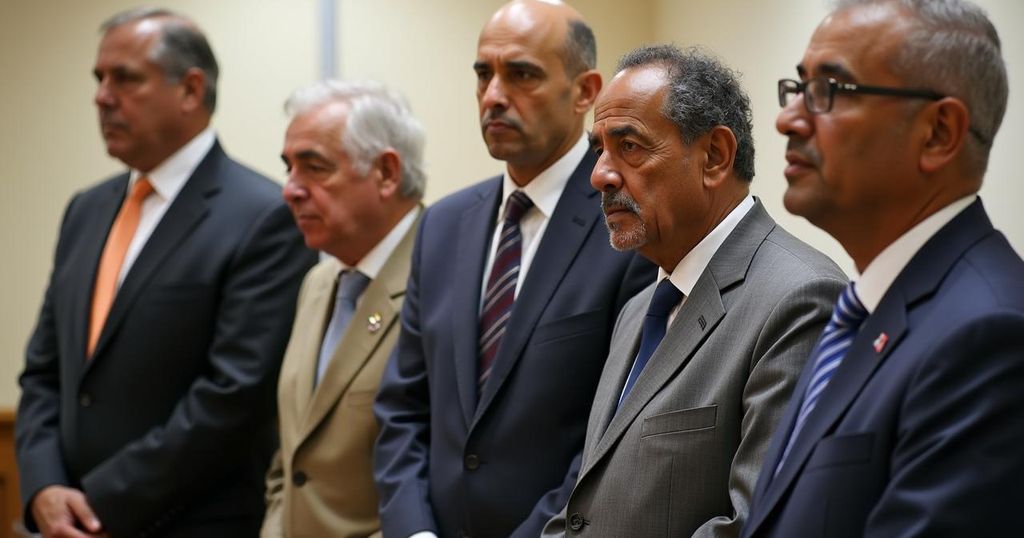African Union Delegation’s Brief Visit to Libya Concludes Amid Political Tensions
The African Union delegation, headed by Mauritanian President Mohamed Ould Ghazouani, left Libya after a one-day visit that excluded the eastern region due to local authorities’ refusal of a meeting. This refusal stemmed from the president’s prior rejection of a request from Osama Hammad, Prime Minister of the eastern government, regarding access to Libyan assets in Mauritania, including the Chinguitty Bank.
The delegation from the African Union, led by Mauritanian President and African Union Chairman Mohamed Ould Ghazouani, departed Tripoli after a brief visit lasting less than twenty-four hours. Notably, the delegation did not travel to the eastern region of Libya due to a refusal from local authorities to receive them. Political analyst Salah Al-Bakoush highlighted that this refusal was a result of President Ghazouani’s prior rejection of a request made by Osama Hammad, the Prime Minister of Libya’s parallel government. Hammad had sought to gain access to Libyan assets in Mauritania, which included the Chinguitty Bank (formerly the Libyan Bank in Nouakchott). In a controversial visit to Mauritania in late August, Hammad proposed to leverage the Wagner forces’ presence in Mauritania, accused of sheltering rebel leaders from Mali, as a bargaining chip in exchange for access to these assets.
The political landscape in Libya remains deeply fragmented, with differing authorities claiming legitimacy in various regions of the country. The eastern authorities, in particular, have established an independent government parallel to the internationally recognized Government of National Unity in Tripoli. This ongoing division complicates diplomatic efforts and negotiations regarding Libyan assets abroad, especially in the context of regional stability and foreign influence, notably illustrated by the controversial Wagner Group activities. The Mauritanian government’s engagement with Libyan leaders underscores the delicate interplay of power and alliances in this region.
In summary, the African Union’s delegation, led by President Ghazouani, concluded its short visit to Libya amid significant political tensions. The refusal of eastern authorities to engage with the delegation reflects the ongoing fragmentation of Libyan governance and the complexities of international diplomacy in the region, particularly concerning access to Libyan financial assets abroad.
Original Source: libyaobserver.ly




Post Comment